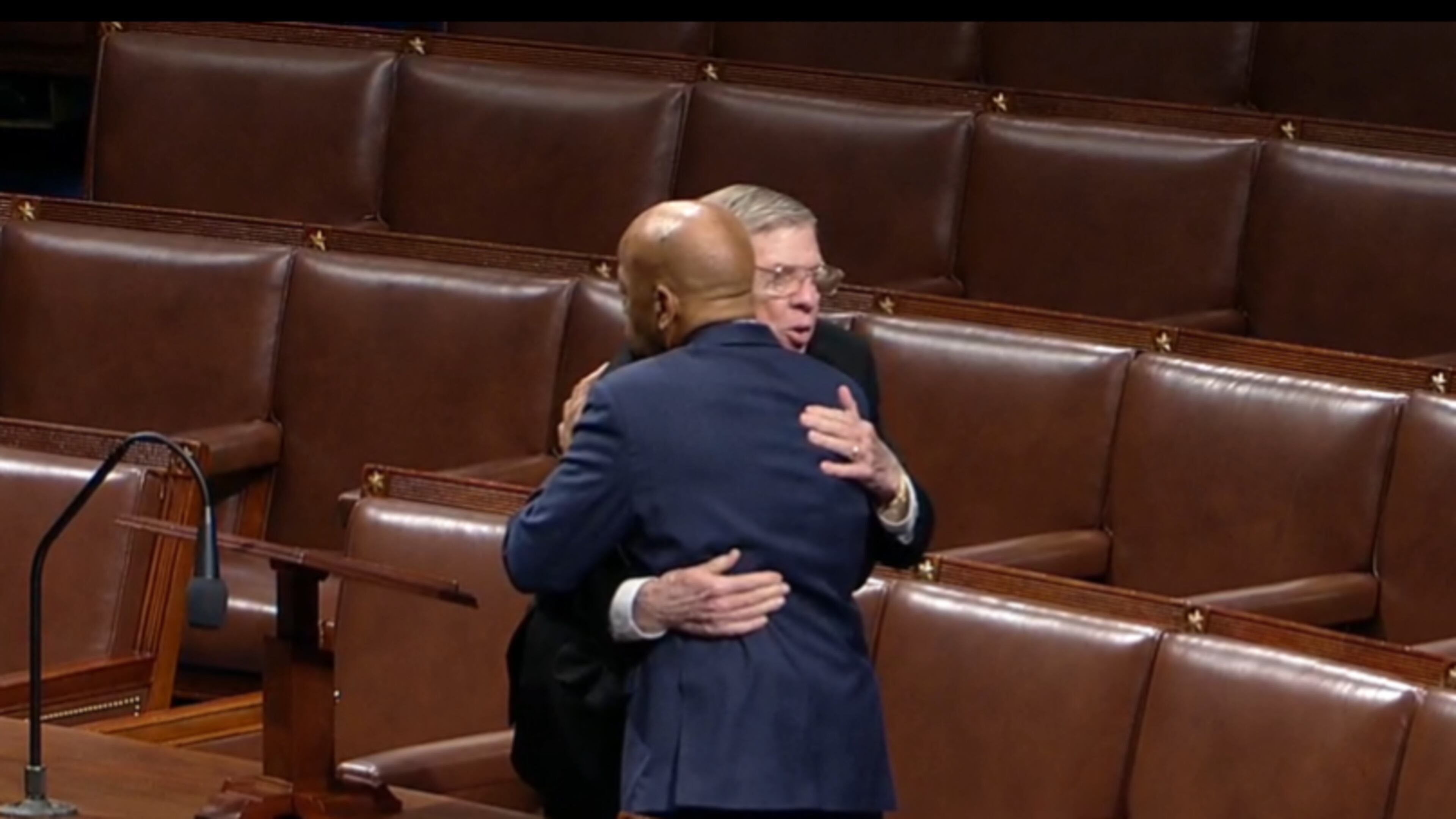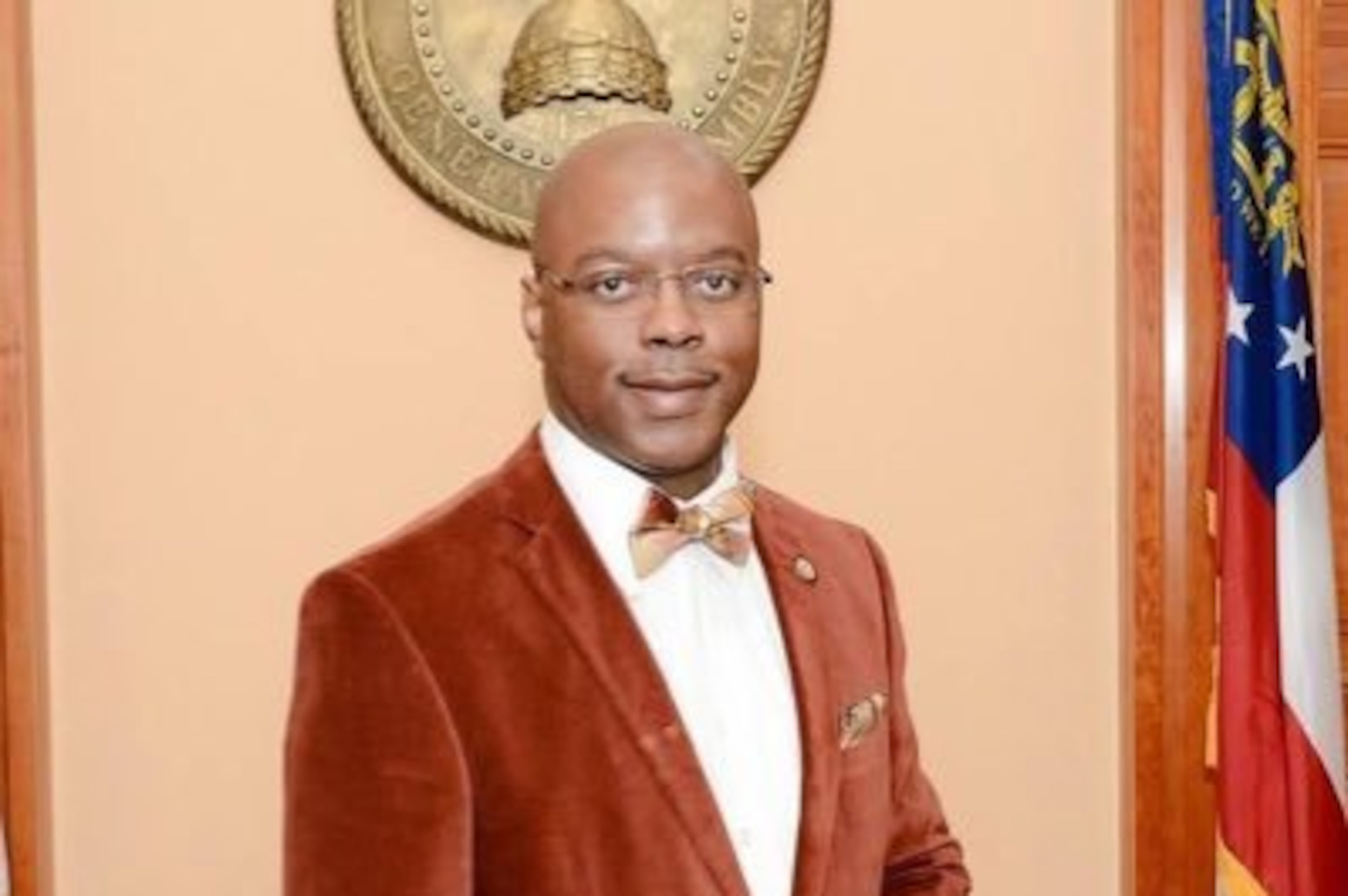OPINION: The example Johnny Isakson and John Lewis left behind

If a single moment epitomizes the legacy of Johnny Isakson, it came on the day in 2019 after the late U.S. Rep. John Lewis spoke in Isakson’s honor.
Lewis, the longtime Georgia Democrat, had spoken of his admiration and affection for Isakson, the longtime Georgia Republican, as Isakson prepared to retire from Congress after more than 20 years.
Lewis called his friend “a warm and welcome gentleman in the truest sense of the word.” And instead of waiting for the ailing Isakson to come shake his hand, Lewis crossed the aisle of the cavernous chamber to hug the senator where he stood.
“I will come over to meet you, brother,” Lewis said.
The image of the two men, one white, one Black, from different parties sharing an embrace was so at odds with the toxic partisanship we’ve come to expect from Washington that it made the front pages and homepages of newspapers around the country.
But for Georgians, it was just one more example of leaders they already knew-- men with different ideologies but a shared commitment to finding common ground.
Within a month of that image, Lewis announced that he had stage 4 pancreatic cancer and Isakson had gone home to Georgia for the last time after Parkinson’s disease had made his work impossible.
In the hours after Isakson died on Sunday, his longtime chief of state Joan Kirchner Carr told me, “The loss of Johnny is the loss of true decency and civility -- both of which are in perilously short supply today.”
She added that it wasn’t just that her boss got things done, “It was how he got things done. Not by fighting and attacking, but by talking and listening and never giving up.”
Even though many of the tributes to Isakson Sunday called him a “statesman,” which he was, he was also remembered by the ones who knew him best as simply a good person.
Isakson was known on Capitol Hill as an unassuming lawmaker, one who did his own laundry and dropped by to visit the staff of other senators, not just the senators themselves. He was a regular at the Wednesday morning bipartisan prayer breakfasts and made friends, real friends, on both sides of the aisle.
He famously called people “friends and future friends.”
“Nobody is an enemy, nobody is a stranger,” Sen. Mitch McConnell said when Isakson retired. “There were just friends and future friends. That’s it.”
One of those friends was McConnell, of course. And Sen. Chris Coons, a Democrat from Delaware. And John Lewis. And Democratic Senate Majority Leader Chuck Schumer.
During a tribute on the Senate floor before Isakson retired, Schumer called him, “One of the kindest, most thoughtful senators I’ve known in my time here.”
At a time when partisanship and insults are rewarded in politics with fame and fortune, Isakson did the tedious work of making an argument, finding the votes, and coming back, again and again, to find common ground, even if the answer was no the first time.
The results, which I promise never went viral on YouTube, were 57 bipartisan bills passed out of Isakson’s Veterans’ Affairs committee to advance everything from veterans’ health care to education. He helped Georgians recover from disasters, and he helped widows and children following 9/11. He supported the 2006 Voting Rights Act and passed the Peace Corps Volunteer Protection Act after he read an obituary about a young woman from Georgia who had been murdered while serving as a volunteer in Benin.
Isakson was also a constant presence in Georgia. Along with GOP breakfasts and county fish fries, he attended every King Day celebration at Ebenezer Baptist Church during his two decades-plus in Congress, and many before.
For as well-liked as he was, Isakson was also, until the end, a loyal Republican in the pre-Donald Trump sense of the word.
He called McConnell “the greatest leader I ever worked for.” Rather than straying from his caucus on big votes, he was far more apt to strike out on his own to forge consensus on his own priorities.
His quiet work made an impact and his example left a path for others to follow, if they dare.
In his last speech to the Senate, Isakson said he had just one message to leave behind from his 45 years in public service. It was a plea to his colleagues to lean into the challenge of bipartisanship.
Isakson said he was truly alarmed at the direction he saw the country headed in -- toward partisanship and tribes and fixed positions on solvable problems.
“Find a way to find common ground,” he said. “When that doesn’t work, find a way to be a future friend.”
And he spoke one last time about his friend Lewis, who watched from the side of the Senate floor and whose words of praise the day before “meant more to me than anything anyone’s ever said about me.”
He described growing up in a segregated Georgia, as Lewis had grown up in segregated Alabama, and about how Lewis had become “one of my heroes in life” through the work he had done during the civil rights movement.
“John and I represent how things can change if people really want them to.”
Isakson’s curling body strained to stand the entire 30 minutes he spoke, and his breathing became labored at times. But he finished his career as he began it -- surrounded by friends in both parties, including Lewis.
Said Isakson: “I’m the happiest guy that could ever be.”



